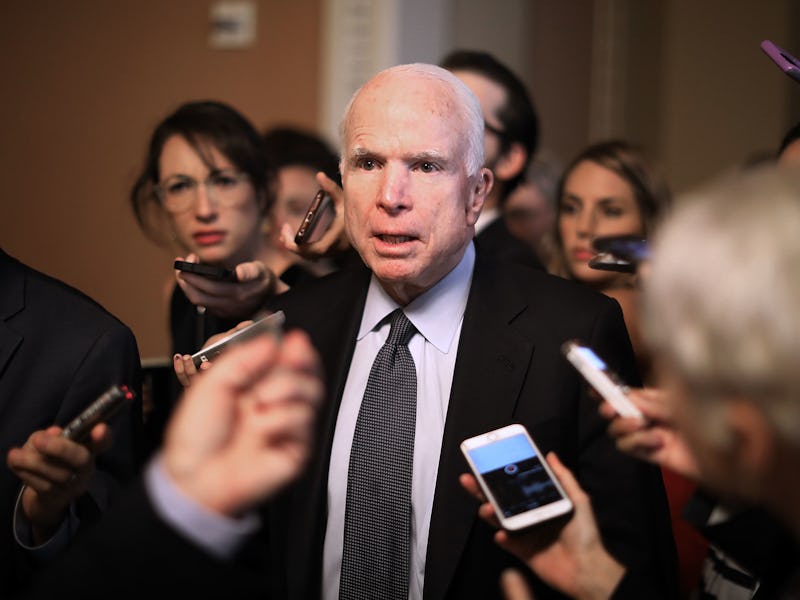The Senate Has Finally Made Its Decision On Obamacare Repeal
It all came down to a handful of flip-flopping Republican Senators.

Things are moving fast on Capitol Hill. A number of Republican Senators who had previously appeared likely to oppose Mitch McConnell’s health insurance law have now voted to allow debate on the bill.
With all 48 Democrats in the Senate united in opposing the motion, Republicans needed at least 50 of their 52 members to vote to proceed on the bill. Two moderate Republican Senators, Lisa Murkowski of Alaska and Susan Collins of Maine, voted no, which left party leadership with the task of pulling every remaining vote together.
Senator Rand Paul of Kentucky, who opposes McConnell’s bill as too incomplete a rollback of Obamacare, agreed to support debate on the bill on the condition that the Senate first vote on a “straight repeal” — cancelling Obamacare with no replacement.
Senators Shelley Moore Capito of West Virginia, Dean Heller of Nevada and Rob Portman of Ohio, who had all previously strongly suggested they opposed the bill under pressure from constituents and their governors, also voted yes.
Senator John McCain of Arizona had been recovering from surgery and the discovery that he has a severe brain cancer. He nonetheless showed up on the Senate floor to cast a yes vote to proceed.
That brought the “aye” count to 50, at which point Vice President Mike Pence showed up to break the tie.
A vote to allow the motion to proceed to does not in and of itself mean Obamacare will be repealed. Capito and Heller both continued to imply in their statements that they may vote no on the actual law.
Per The New York Times, here are the next steps:
- The Senate will vote on repealing Obamacare with no replacement. This is unlikely to pass.
- Assuming that fails, Senators will vote on repealing Obamacare and replacing it with the Better Care Reconciliation Act primarily authored by Mitch McConnell.
- If that fails, the Senate will then vote on repealing Obamacare’s individual mandate, a so-called “skinny repeal” which rolls back the individual mandate, employer mandate, and a tax on certain healthcare devices.